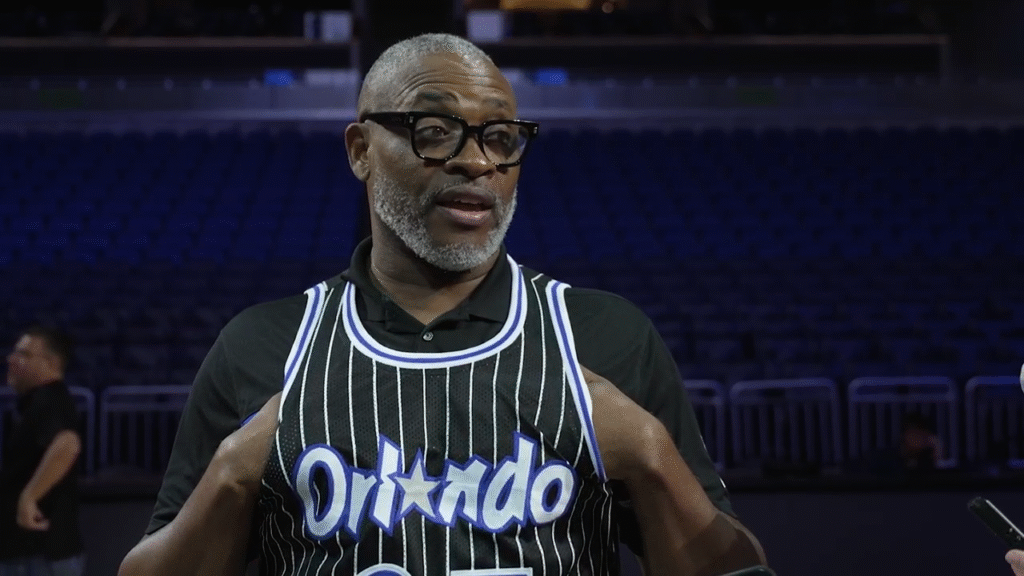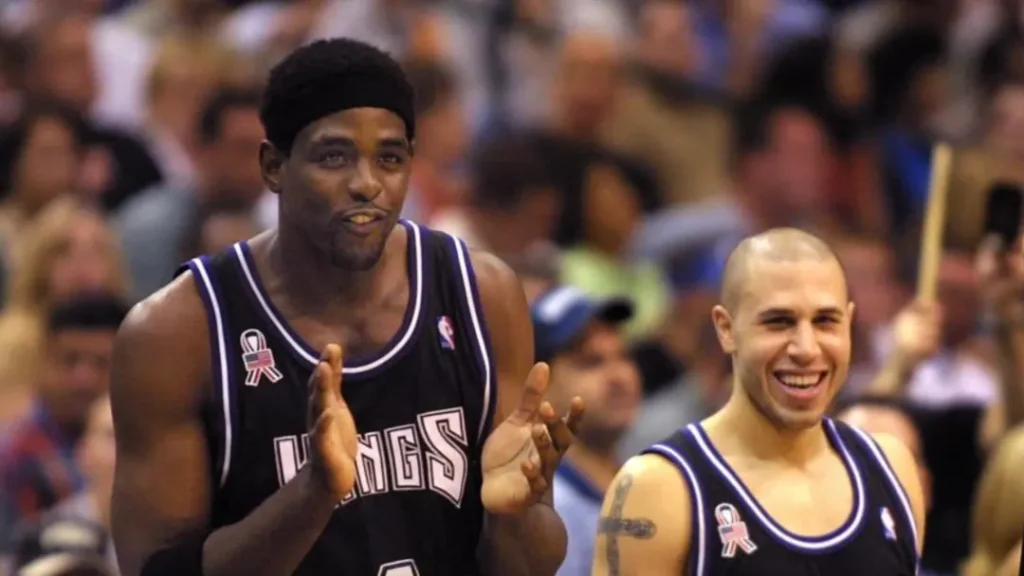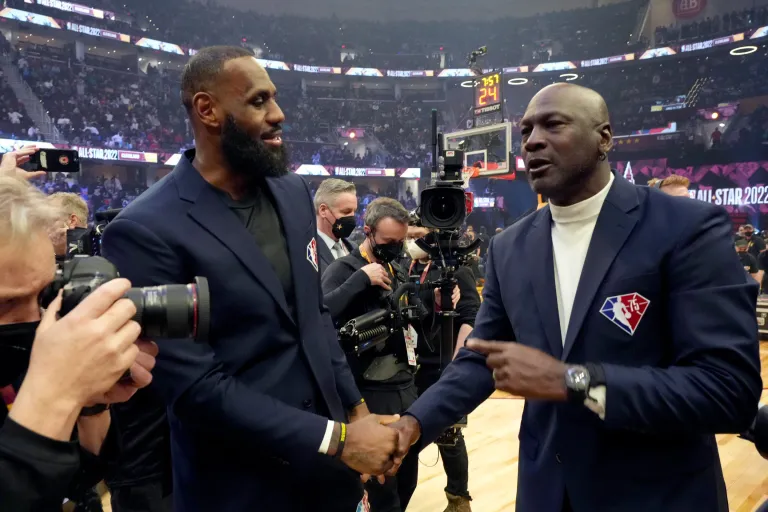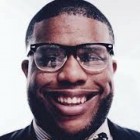
You can’t tell the story of 1990s basketball or the culture of the Orlando Magic without saying the name Nick Anderson. The original draft pick in Magic franchise history and a son of Chicago’s storied basketball scene, Anderson has lived a life full of defining NBA moments—and he’s got stories for days. His voice blends candor, humor, and old-school edge, and when you sit with him, it’s clear he’s not holding anything back.
In a candid, wide-ranging conversation, Anderson reflected on everything from mentoring young players and sharing the court with Michael Jordan and Penny Hardaway to how the modern NBA stacks up to the golden era. His reflections reveal the arc of a career built on toughness, adaptability, and an enduring love for the game.
THE NUMBER 1 DEBATE: Penny and T-Mac’s Magic Connection

Few jersey numbers carry as much weight in Orlando Magic history as No. 1. It’s a number that came to define two of the franchise’s most iconic players—Penny Hardaway and Tracy McGrady. For fans, it’s a matter of generational loyalty. But for Anderson, it’s about respect and origins.
When asked who should be honored first if the Magic ever retire the number, Anderson provided a clear answer with context rooted in legacy and inspiration.
“Well if you ever followed Tracy McGrady and hear him talk, he talks about the reason that he chose number #1. It’s because of Penny Hardaway…”
His answer wasn’t about stats or All-Star appearances—it was about the ripple effect of Penny’s influence on an entire generation.
IDOLIZING JOE DUMARS

Growing up in Chicago, Anderson had plenty of hoop heroes, but one player in particular left an impression that went beyond basketball skills. That player was Joe Dumars—a consummate professional who let his game and demeanor do the talking. Dumars was more than a scorer or a defender; he was a role model.
Anderson said Dumars exemplified class, character, and championship focus.
“It was one guy that I idolized as a player and idolized by the way that he carried himself… I’m a BIG Joe Dumars fan…”
For Anderson, Dumars embodied professionalism, poise, and quiet excellence—qualities he tried to carry into his own career.
COACHING & MENTORSHIP: THE NEXT CHAPTER?

As Anderson transitions to life beyond playing, coaching remains a possibility—but not in the traditional sense. He sees it as an extension of his role as a mentor, someone who’s walked the walk and can now guide others through their own journeys. For Anderson, coaching is about life lessons, not just drawing up plays.
His interest in coaching stems from a deeper desire to nurture, uplift, and build men of character on and off the court.
“Coaching, yes. Because I look at it like this. I think I have a lot to offer young men from the basketball standpoint and also away from the floor…”
He knows from experience that behind every highlight is a struggle. That’s the wisdom he wants to pass on.
FACING THE GOAT: Thoughts on MJ vs. LeBron

Very few can say they went head-to-head with Michael Jordan in his prime. Anderson not only did, but he did so as part of one of the few teams to eliminate MJ from the playoffs. The memories are vivid—and still raw.
When asked about the ongoing LeBron vs. MJ debate, Anderson’s stance was firm—because his experience was firsthand.
“I don’t think it complicates things… Michael Jordan in my opinion is the BEST player that I ever faced…”
No disrespect to LeBron. But Anderson made it clear: you had to live through MJ to really understand.
PENNY’S PROMISE: Parallels with LeBron James

Before the NBA had a do-everything forward named LeBron James, there was Anfernee “Penny” Hardaway—a 6’7″ guard with vision, flash, and unselfishness. Penny was magic before the Magic. Anderson believes Penny was ahead of his time, and if not for injuries, the conversation around his career would sound very different today.
“Oh, no question. You look at Penny Hardaway at 6’7 or 6’8 and can pass the ball, can score, rebound, and be a great defender…”
In an era where “positionless basketball” wasn’t a buzzword yet, Penny was already doing it.
2002 KINGS VS. LAKERS: WHAT REALLY HAPPENED?

The 2002 Western Conference Finals between the Sacramento Kings and Los Angeles Lakers remains one of the most controversial playoff series in NBA history. It wasn’t just about missed calls—it was about momentum, pressure, and how it felt like something slipped away.
Anderson, who was part of that Kings roster, had a courtside view of the physical play, emotional highs, and officiating that still sparks debate to this day. He recalled the sense of injustice that lingered long after the final buzzer.
“I can’t take anything from the LakeShow… Now did they sneak one in? Yeah.” [laughs]
That “sneak in” refers to the now-infamous Game 6, widely scrutinized for its officiating. The Kings were loaded—Chris Webber, Mike Bibby, Peja Stojaković, Vlade Divac—and had taken a 3-2 series lead. Game 6 saw a massive free-throw disparity in favor of the Lakers, and the game ultimately tipped the series.
The sting of that loss still lingers.
“We had that team beat. We were ready. That group believed we were the better team—and I still do.”
Anderson isn’t alone in that belief. Many basketball historians, and even former officials, have cited that series as one of the most egregious examples of playoff manipulation. For Anderson, it wasn’t just a loss—it was a stolen opportunity.
“We had the fans. We had chemistry. We had the talent. That was OUR time. And we never got it back.”
FINDING ANOTHER CHRIS WEBBER?

The Kings’ engine was Chris Webber, a uniquely gifted big who combined power, vision, and unselfishness. Anderson marveled at how Webber could control the game without needing to score 30. He believes Webber’s full impact still goes underappreciated.
“That’ll take me a while to think about that… Chris Webber had to be one of the BEST big men to play the game…”
Webber’s combination of vision, touch, and leadership made him rare then—and maybe even rarer now.
FULL CIRCLE: LEGACY, LOYALTY & LASTING IMPACT

Nick Anderson’s journey through the NBA isn’t just told in points, steals, or playoff moments—it’s reflected in the players he influenced, the battles he fought, and the stories he still tells with clarity and pride. From being the Magic’s original cornerstone to a respected vet on title-contending squads, Anderson’s career arcs through eras and echoes through generations.
He’s lived the highs, endured the lows, and continues to give back—whether it’s through mentorship, community work, or simply keeping it real with the next crop of hoopers. His voice carries weight not just because of what he did on the floor, but because of how he’s carried himself since.
“I never forgot where I came from,” he says. “And I never stopped loving the game.”
In an era obsessed with rings and rankings, Anderson’s legacy is a reminder: there’s more than one way to matter in the NBA. And when the story of basketball is told, Nick Anderson’s name will always have a place—etched in Magic blue, rooted in Chicago grit, and wrapped in respect.

